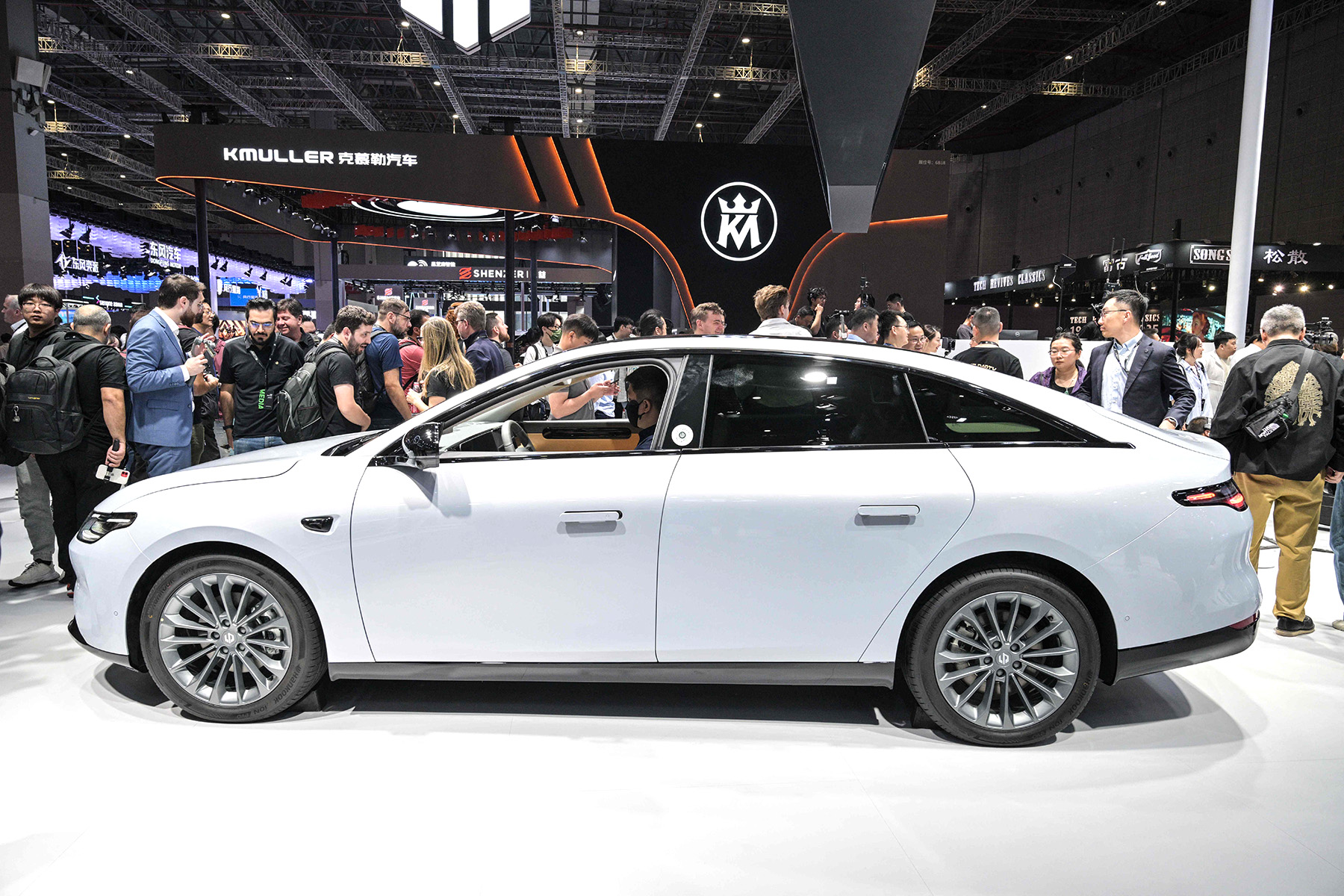Nation's startups and traditional carmakers reporting strong performances across key categories like revenue, gross margin, and deliveries

Chinese new energy vehicle startups posted a record-breaking performance in the first half of this year, demonstrating their growing momentum in both domestic and overseas markets.
Leapmotor has turned a profit for the first time in a half year, joining Li Auto as the only Chinese NEV startups to achieve that milestone.
In the first six months of 2025, Leapmotor's deliveries surged 155.7 percent from a year earlier to 221,664 vehicles, the highest among Chinese NEV startups.Meanwhile, its revenue surged 174 percent to 24.25 billion yuan ($3.37 billion).
READ MORE: China's auto sales, production exceed 10 million in first 4 months
Its gross margin rose to 14.1 percent, up 13 percentage points compared with the first half of 2024, the best in Leapmotor's history.This is attributed to economies of scale from increased sales, which led to reduced unit costs.
In July, its sales exceeded 50,000 units for the first time, maintaining its position as the top-selling NEV startup for five consecutive months.
Also that month, Leapmotor made its debut on the Fortune China 500 list, the only entrant among NEV startups.
The automaker has increased this year's sales target to 580,000-650,000 vehicles and aims for 1 million next year.
Thanks to its partnership with European auto group Stellantis, Leapmotor reported strong overseas sales too. From January to July, the automaker exported 24,980 NEVs, the highest among NEV startups.
Its performance in Europe has been particularly impressive, with over 4,000 orders in July, setting a record. The first batch of B10 SUVs was shipped to Europe in July and is set to launch at the IAA Mobility in Munich, Germany, in September.
The company plans to establish a production base in Europe by the end of 2026.
XPeng also delivered standout results, with key metrics such as deliveries, revenue, and gross margin hitting new highs for the second quarter.
It delivered 103,181 units from April to June, up 241.6 percent year-over-year, setting a single-quarter record.
Its revenue reached 18.27 billion yuan in Q2, marking a year-over-year growth of 125.3 percent and a record quarter-over-quarter growth of 15.6 percent.
The closely watched vehicle gross margin stood at 14.3 percent, up 7.9 percentage points from the same period of 2024, achieving continuous improvement for eight consecutive quarters.
The figure demonstrates the company's balance and optimization of its product pricing strategy and cost control amid intense market competition.
XPeng Chairman and CEO He Xiaopeng said that the company has upgraded its new-generation technology platform in 2025, creating a technological advantage over its competitors. This is expected to inject momentum into future products.
The automaker will launch the new P7 this week. It is expected to rank among the top three electric sedans priced under 300,000 yuan and achieve monthly deliveries of more than 40,000 from September, according to He.
XPeng also plans to launch a range-extended version of the X9 MPV in the fourth quarter this year, marking its entry into the competitive but fast-growing range-extended electric vehicle market.
The automaker expects third-quarter deliveries of 113,000 to 118,000 vehicles, up 143-154 percent year-over-year, with revenue projected at 19.6-21 billion yuan, representing 94-108 percent growth.
Internationally, XPeng has entered 46 markets, including the United Kingdom, Italy, and Ireland. These countries accepted deliveries of over 18,000 vehicles in the first half, a 200 percent increase year-over-year. Production has also begun in Indonesia.
Joining the momentum, Xiaomi's EV business also reached new milestones in Q2 with its revenue at 20.6 billion yuan and the delivery of 81,302 cars, setting a record.
The average selling price rose by 10.9 percent to 253,662 yuan in the second quarter, mainly due to increased deliveries of the higher-priced Xiaomi SU7 Ultra sedan.
In July, Xiaomi's monthly deliveries surpassed 30,000 units for the first time. Xiaomi President Lu Weibing said that the company will not engage in price wars. The current priority is to quickly deliver orders.
According to Lu, Xiaomi is confident in achieving its delivery target of 350,000 vehicles this year and its auto business is expected to achieve quarterly profitability in the second half of the year.
ALSO READ: Offseason can't halt China carmakers' rise
Xiaomi's EV business also plans to enter the European market in 2027, marking the first step of its global expansion.
Established automakers also showed a strong performance. Geely's revenue reached 150.29 billion yuan in the first half of 2025, marking a 27 percent increase year-on-year and setting a record for the company.
The revenue growth is primarily attributed to a sharp increase in Geely's sales volume, which reached 1.41 million units, up 47 percent year-on-year, which set another record for the company.
Among these, NEV sales reached 725,200 units, marking a year-on-year increase of 126 percent. NEVs accounted for 51.5 percent of Geely's total sales, highlighting the company's focus in that sector.
Contact the writer at caoyingying@Chinadaily.com.cn


